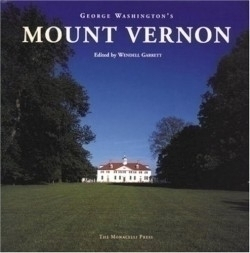
George Washington's Mount Vernon
At Home in Revolutionary America
Schoolchildren know Mount Vernon as Washington’s estate near the city that bears his name. Serious history students are aware of the passion our first president felt for his country home, his beloved refuge from the frustrations of leading a revolutionary army and cobbling together a new nation. Now come Robert F. Dalzell Jr. and Lee Baldwin Dalzell, who argue that Mount Vernon carries greater historical significance than generally understood.
The authors contend it was “far more than simply a house. It was an extension of the man himself, a tangible emblem of his character, his personality, his hopes, his dreams.” Its evolution reflected changes not just in Washington’s architectural tastes, but also in his politics. Mount Vernon is, in a sense, the autobiography that this intensely private man never wrote.
As a young man in the mid-1750s, Washington redesigned the house after the mansions of Virginia elites, into whose social circle he sought entry. With revolutionary fervor boiling two decades later, he ordered a redesign with little concern for contemporary fashion. Home again following victory over the British, Washington determined to make the estate less dependent on slavery—a system he had come to deplore but felt powerless to abolish without destroying the fledgling nation. Finally, the most radical step of all: His will decreed freedom for his slaves and divided the estate among two dozen people. No windfall for one or two privileged heirs, and no guarantee that Mount Vernon would remain intact. Indeed, Washington could only assume it would crumble slowly into oblivion.
Robert Dalzell, professor of American history at Williams College, and wife Lee Dalzell, head of the college library’s reference department, undertook this project after visiting Mount Vernon and finding no scholarly writings about its history in the gift shop. With its exhaustive detail and meticulous research, their book fills that void. It is not for the casual reader, but students of revolutionary America will find it a source of valuable insights into the life and thought of our nation’s primary founder. Recommended for library collections.
Reviewed by
John Flesher
Disclosure: This article is not an endorsement, but a review. The publisher of this book provided free copies of the book to have their book reviewed by a professional reviewer. No fee was paid by the publisher for this review. Foreword Reviews only recommends books that we love. Foreword Magazine, Inc. is disclosing this in accordance with the Federal Trade Commission’s 16 CFR, Part 255.
